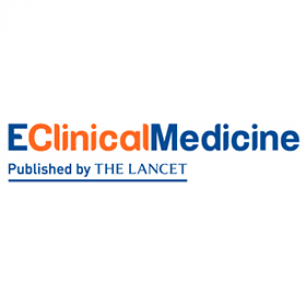For the first time, researchers from the National Drug and Alcohol Research Centre (NDARC) at UNSW Sydney have conducted a global review of the evidence on methamphetamine use and mental health.
Led by global expert in methamphetamine research, Associate Professor Rebecca McKetin, and published in EClinicalMedicine by The Lancet, the findings confirm that people who use methamphetamine are at a significantly elevated risk of poor mental health when compared to those who do not use the drug.
“We found that people who use methamphetamine are around twice as likely to experience depression and psychosis and four times more likely to be suicidal,” said Associate Professor McKetin.
The findings follow a recent global review published by The Lancet that showed Australasia has one of the highest rates of dependence on amphetamines internationally.
“Growing global supply and increasing interconnectedness of the market are some reasons for the spread of problematic use, particularly in relation to the availability and popularity of high purity crystalline methamphetamine,” said Associate Professor McKetin.
The EClinicalMedicine review highlights the need for services that interact with people who use methamphetamine to treat and manage co-occurring mental health conditions.
“Services for substance use and mental health are often separate, meaning that people who use substances do not get the care they need for mental health issues,” said Associate Professor McKetin.
“More work is needed to ensure that people who use this drug are provided with adequate mental health care. We need to tailor generic responses and make sure they are acceptable, safe, and effective for people who use methamphetamine.”
Two reports published today by NDARC confirm high rates of death and hospitalisations with people who use amphetamines and other stimulants.
“In 2017-18, 23 per cent of the 60,627 drug-related hospitalisations were from people who used amphetamines and other stimulants as compared to seven per cent of the 39,403 drug-related hospitalisations in 1999-00,” said Dr Amy Peacock, Program Lead for Drug Trends at NDARC.
“We are also still seeing a high rate of deaths involving amphetamine use, with amphetamines being cited as contributing to death in 26 per cent of the 1,740 drug induced deaths in 2018.”
The elevated risk of psychosis is a major concern and treatments need to be developed and implemented to stop the progression to schizophrenia.
“There is currently no agreed treatment model for people who have methamphetamine-related psychosis. People are often discharged without a care plan for their psychosis, resulting in a 'revolving door’ scenario,” said Dr Shalini Arunogiri, Addiction Psychiatrist at Eastern Health Turning Point and Monash University.
“Psychosis is often dismissed as being drug-induced, but the reality is that many of these people will experience recurrent psychotic episodes, often triggered by ongoing methamphetamine use, and some will go on to develop schizophrenia. This is a real opportunity for early intervention to prevent an ongoing risk of enduring mental illness.”
The review also links higher depression and suicidality rates to methamphetamine use and recommends implementing strategies to reduce risk.
“The high from using methamphetamine relieves depression, but when people stop using, the depression gets worse. This can lead to a downward spiral. Some antidepressants can interact with methamphetamine and this can increase the risk of side-effects,” said Associate Professor McKetin.
“We also need to apply strategies that we know work more generally to reduce suicide risk. Psychological therapies can also reduce the risk of depression and suicidality, and these need to be implemented.”
The review can be viewed online here.
McKetin, R., Leung, J., Stockings, E., Huo, Y., Foulds, J., Lappin, J., Cumming, C., Craig; A., Arunogiri, S., Young, J., Sara, G., Farrell, M., & Degenhardt, L. (2019). Mental health outcomes associated with the use of amphetamines: A systematic review and meta-analysis. EClinicalMedicine. Advance online publication. doi:10.1016/j.eclinm.2019.09.014
Farrell, M., Martin, N. K., Stockings, E., Bórquez, A., Cepeda, J. A., Degenhardt, L., Ali, R., Tran, L. T., Rehm, J., Torrens, M., Shoptaw, S., & McKetin, R. (2019). Responding to global stimulant use: challenges and opportunities. The Lancet, 394(10209), 1652-1667. doi:10.1016/S0140-6736(19)32230-5
Man, N., Chrzanowska, A., Dobbins, T., Degenhardt, L., Peacock, A. (2019). Trends in drug-induced deaths in Australia, 1997-2018. View online here: https://ndarc.med.unsw.edu.au/resource/trends-drug-induced-deaths-australia-1997-2018
Chrzanowska, A., Man, N., Dobbins, T., Degenhardt, L., Peacock, A. (2019). Trends in drug-related hospital separations in Australia, 1999-2018. View online here: https://ndarc.med.unsw.edu.au/resource/trends-drug-related-hospitalisations-australia-1999-2018
People can access free and confidential advice about alcohol and other drugs by calling the National Alcohol and Other Drug Hotline - 1800 250 015.




